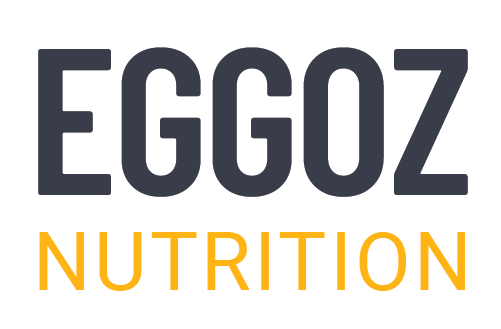Ever wondered how many eggs you should eat each day to maximise health benefits without going overboard?
Eggs are a nutritional powerhouse, offering a rich source of protein, essential amino acids, vitamin D, omega-3 fatty acids and more.
However, the quantity of eggs a person should eat daily varies significantly based on factors like age, weight, gender, and even the season.
In this blog, we'll explore the recommended egg intake based on the nutritional preferences of various individuals.
1. Egg Consumption by Age Group
Children (2-12 years)
For children, protein is essential for growth and development. Eggs are a fantastic source of amino acids, the building blocks of protein. For kids aged 2-12, one egg per day is usually a good starting point, providing them with necessary vitamin D, omega-3 fatty acids, and a host of other nutrients. During periods of rapid growth, children may benefit from consuming one whole egg daily, especially in winter when vitamin D is needed for bone development.
Parents often ask, "how many eggs to eat per day for children?" Generally, one hard-boiled egg is sufficient, but if your child is particularly active or involved in sports, 1 to 2 eggs a day can be beneficial.
Teenagers (13-19 years)
Hormones like insulin help regulate functions such as metabolism and blood sugar. Eggs, rich in protein and healthy fats, support hormone production and meet daily nutritional needs. Teenagers experience body changes, increasing their nutrient demands. For most, 1–3 boiled eggs daily provide essential protein, vitamins, and omega-3s. Boys often need more protein, so up to three eggs per day can benefit them, while one to two eggs is sufficient for girls, especially if less active.
Adults (20-50 years)
For adults in their prime years, 1–2 whole eggs a day can provide a rich source of protein, amino acids, vitamin D, and omega-3 fatty acids. The general rule of thumb is that most healthy adults can consume 1–2 eggs daily without negative effects on heart health, but this number could change based on weight, physical activity levels, and dietary habits.
In contrast, adults may prefer to reduce their egg intake slightly during the summer, especially if they already get plenty of sunlight, which helps their body produce vitamin D naturally.
Older Adults (50+ years)
As we age, our bodies need more protein to maintain muscle mass, and vitamin D becomes increasingly important for bone health. However, older individuals should be mindful of cholesterol levels. While egg yolk is nutritious, older adults with high cholesterol or heart disease risk factors may benefit from consuming more egg whites rather than whole eggs.
For this age group, moderation is key. Eating 4-5 eggs per week can be sufficient for most individuals, but consulting a healthcare provider for personalised advice is essential.
2. Egg Intake Based on Weight and Activity Levels
Underweight Individuals
If you’re underweight and trying to increase your calorie intake, eggs are an excellent option. Packed with protein and essential fats from the egg yolk, you can safely consume 2–3 eggs per day. Additionally, eggs can help improve muscle mass and overall body composition.
For those trying to gain weight, eggs consumed with other high-calorie, nutrient-dense foods such as avocados or whole grains can provide a balanced diet.
Normal Weight Individuals:
For individuals with a healthy weight, eating 1–2 eggs daily provides sufficient nutrients without pushing cholesterol levels too high. The key is balance; ensure you're consuming other protein sources and keeping an eye on overall cholesterol intake from your diet.
Overweight or Obese Individuals:
Those looking to lose weight or weight management, can eat egg whites only. However, a whole egg contain essential nutrients such as egg intake, particularly whole eggs, which are higher in fat. While egg whites are low in calories and contain no cholesterol, egg yolks do contribute significant amounts of fat and cholesterol. Overweight individuals may benefit from consuming 4-5 eggs per week, with an emphasis on egg whites over whole eggs.
3. Seasonal Variation: How Many Eggs to Eat in Summer vs. Winter
Winter:
During the colder months, when we are less exposed to sunlight, vitamin D in eggs becomes more important for maintaining strong bones and overall health. Consuming 1–2 eggs daily during winter is recommended for most people to ensure adequate levels of this critical nutrient.
Moreover, winter demands more energy from the body to stay warm, and eggs are an excellent source of calories and fats. In colder climates, especially, egg consumption can be slightly higher—up to two per day.
Summer:
In summer, people may reduce their egg intake slightly due to the hot weather and natural vitamin D synthesis from sun exposure. One whole egg per day is usually enough during summer months to meet daily nutrient needs.
However, for athletes or individuals with increased activity levels, 1–2 protein-packed eggs per day can support muscle repair and recovery, even in the heat.
4. Differences in Egg Consumption for Men and Women
Men
Men generally have higher caloric and protein needs than women due to larger muscle mass. As such, men can often consume 2–3 eggs daily without adverse effects, particularly if they lead an active lifestyle. For men focused on building muscle, eggs provide essential amino acids for muscle recovery.
Women
Women, on average, require fewer calories than men, but they still need sufficient protein and vitamins like vitamin D for bone health, especially during pregnancy or menopause. Women can safely consume 1–2 eggs daily, focusing on whole eggs for the benefits of the egg yolk, which contains iron and folate.
Pregnant women can particularly benefit from buying free range eggs, which tend to have higher levels of nutrients like omega-3. However, pregnant women should consult a healthcare provider to ensure their diet aligns with their pregnancy-related nutritional needs.
Nutritional Advantages of Eating Eggs
Eggs are one of the most nutrient-dense foods available, containing almost every nutrient your body needs, including vitamin D, omega-3, and all essential amino acids. Here’s a closer look at the health benefits of consuming eggs:
- Protein-packed eggs: One large egg contains about 6 grams of high-quality protein.
- Bright orange yolk: This is a sign of fresh, nutrient-rich eggs that provide more vitamin D and omega-3 fatty acids.
- One day fresh eggs: Purchasing fresh eggs near me ensures maximum nutrient retention.
Incorporating eggs into your diet offers many health benefits, but it’s essential to choose high-quality eggs. Opt to buy free range eggs near me, or if you prefer convenience, you can order fresh eggs online. Fresh eggs not only taste better but also pack more nutrients.
Conclusion
The number of eggs you can safely eat per day depends on various factors, including age, weight, gender, and the season. When it comes to sourcing eggs, ensure that you buy fresh eggs online or purchase fresh eggs near me to get the best quality, nutrient-packed eggs. Adding Eggoz eggs to your diet ensures you’re getting the best in terms of taste, nutrition, and freshness. Whether you're a fan of whole eggs, egg yolk, or egg whites, there’s no denying that eggs are an excellent addition to any diet.


